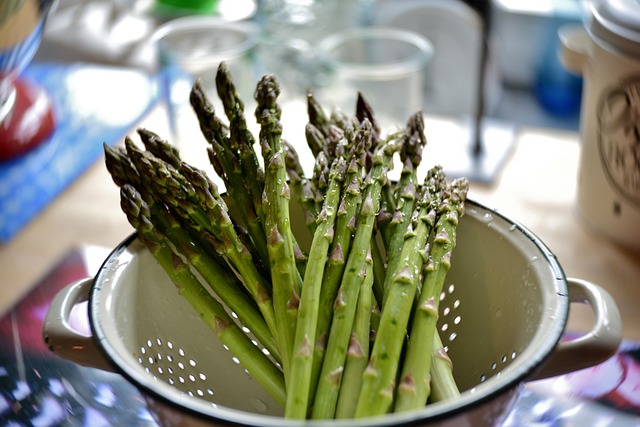Renovation projects, especially eco-friendly kitchen upgrades, generate significant waste contributing to environmental issues and overloading landfills. By adopting practices like upcycling, donating, and recycling, homeowners can minimize waste, reduce their carbon footprint, save energy, and create unique spaces while saving money. Repurposing old furniture and materials, such as using reclaimed wood for countertops or recycled windows as decorative accents, reduces demand for new materials. Opting for eco-friendly alternatives like recycled materials and energy-efficient appliances offers functional benefits and preserves the planet. Repurposing materials not only benefits the environment but also extends the lifespan of components and lowers costs, making it an attractive option for budget-conscious homeowners.
Repurposing existing materials during renovation isn’t just an eco-conscious choice—it’s a powerful way to minimize waste, save money, and slash environmental impact. In today’s world, where sustainability is paramount, understanding how to transform old into new is more vital than ever. This article explores effective strategies for navigating renovations responsibly, focusing on your kitchen, with creative solutions for eco-friendly upgrades that benefit both the planet and your wallet.
Understanding the Impact of Renovation Waste
Renovation projects often generate significant amounts of waste, contributing to environmental issues and filling landfills with materials that could be repurposed or reused. This is particularly evident in the case of eco-friendly kitchen upgrades, where a simple upgrade can lead to a substantial amount of debris if not managed properly. Understanding the impact of this waste is the first step towards minimizing it.
Many renovation materials, especially those from older homes, contain toxic substances that can harm both people and the environment when improperly disposed of. Additionally, the energy and resources used in producing new materials could be saved by repurposing existing ones. By adopting practices like upcycling, donating usable items, or recycling, homeowners and contractors can reduce their carbon footprint and contribute to a more sustainable future.
Assessing Your Kitchen for Repurposing Potential
When considering repurposing materials for your next renovation project, start with an assessment of your kitchen—a space that often contains a wealth of potential resources. Begin by taking inventory of existing cabinets, countertops, and appliances. Many older or unwanted items can be given new life as eco-friendly kitchen upgrades. For example, solid wood cabinets might be refinished and reinstalled, reducing the need for new materials. Similarly, granite countertops can be salvaged and reused in other areas of your home, contributing to a more sustainable approach.
Additionally, appliances like refrigerators or ovens can be repaired and refurbished instead of replaced, extending their lifespan. This not only minimizes waste but also saves you money. Look around for hidden gems—a vintage sink could become a unique feature, while functional hardware from old cabinets can be reutilized elsewhere, ensuring your kitchen renovation is both stylish and environmentally conscious.
Creative Ways to Reuse Common Materials
Repurposing and upcycling common materials during renovation projects is an innovative way to reduce waste and create unique, eco-friendly spaces, especially when it comes to transforming kitchens. One creative approach is to give new life to old furniture. That antique dresser can be converted into a stylish kitchen island with added storage compartments. Similarly, reclaimed wood from torn-down structures can be utilized for countertops or flooring, offering a rustic charm and minimizing the demand for new materials.
Another sustainable strategy is to recycle and reuse building components. Old windows can find new purpose as decorative accents or even as functional pantry doors. Steel pipes, commonly found in demolition sites, can be cut and bent to create unique open shelves or bracket systems for hanging pots and pans. These creative techniques not only reduce environmental impact but also add character and individuality to the renovated kitchen, making it a truly one-of-a-kind space.
Eco-Friendly Alternatives for Essential Upgrades
When it comes to renovation, one of the most significant ways to minimize waste is by opting for eco-friendly alternatives. For instance, when upgrading your kitchen, consider using recycled or sustainably sourced materials such as bamboo countertops, which offer a durable and stylish option while reducing environmental impact. These choices not only cut down on waste but also contribute to a healthier planet.
Additionally, many modern eco-friendly kitchen upgrades provide equal or superior functionality compared to traditional options. For example, energy-efficient appliances reduce power consumption, saving you money on utility bills over time. Water-saving fixtures, like low-flow faucets and showerheads, are another excellent choice, helping conserve precious water resources without compromising on performance.
Long-Term Benefits and Saving Tips
Repurposing materials during renovation offers significant long-term benefits, aligning perfectly with the pursuit of an eco-friendly kitchen. By salvaging and reusing components, you directly contribute to reducing construction waste, which is a major environmental concern. This approach not only minimizes your carbon footprint but also saves valuable resources that would otherwise need to be extracted and processed for new materials.
In terms of savings, repurposing can translate into substantial financial benefits. Reconditioning existing cabinets, countertops, or flooring can extend their lifespan, delaying the need for replacements. Additionally, many repurposed materials have a lower cost compared to their new counterparts, making them an attractive option for budget-conscious renovators. These tips not only promote sustainability but also empower homeowners to create beautiful, unique, and environmentally conscious spaces without breaking the bank.
Repurposing existing materials and choosing eco-friendly alternatives during kitchen renovations is not only good for the planet but also your wallet. By understanding the potential of your space and exploring creative solutions, you can significantly minimize waste, save money on upgrades, and contribute to a more sustainable future. Embrace these practices to transform your kitchen into an eco-conscious oasis that serves as a testament to responsible living.
